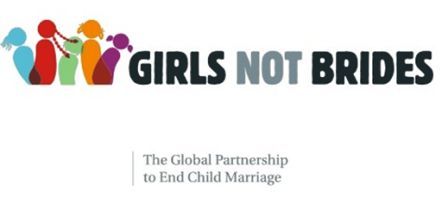Humanitarian and natural disasters linked to increase in child marriage warns Girls Not Brides
Global campaign launched to ensure implementation of UN target to end child marriage
Humanitarian and natural disasters are leading to dramatic increases in child marriage around the world, warns Girls Not Brides: The Global Partnership to End Child Marriage.
Mounting evidence reveals that in times of crisis, whether triggered by refugee emergencies, floods, earthquakes or war, the number of young girls being married rises as families struggle to cope.
Studies show that child marriages have increased by as much as 20 per cent in Syrian refugee camps in Jordan.i In Bangladesh, a country prone to floods and other natural disasters, many families see child marriage as the best option to protect children they are too poor to feed or educate.ii
There is also compelling evidence that, even in non-emergency contexts, child marriage has a devastating impact on the health, education and opportunities of the 15 million girls who are married every year, and holds back communities.
The first global target to end child marriage was recently adopted by the United Nations as part of the Global Goals for Sustainable Development. Girls Not Brides is calling on governments to turn their UN commitments into actions in order to end child marriage by 2030.
On October 1st 2015, the civil society partnership will launch #MyLifeAt15, a global campaign to press governments to urgently implement and enforce their commitments to ending child marriage. The campaign will highlight the personal aspirations as teenagers of world leaders, activists and girls around the globe, and call on governments to put in place policies, programmes and plans to end child marriage once and for all.
Archbishop Desmond Tutu, who is supporting #MyLifeAt15 said, “15 million girls are pushed into marriage every year, almost always to men older than themselves. It is under our watch that these girls lose their childhood, their chance to be educated, to become anything they want, and it is our responsibility, all of us together, to make sure that it stops”.
A humanitarian imperative
In Jordan, both official statisticsiii and reports from Girls Not Brides member Care Internationaliv show that child marriage has increased alarmingly, and in some cases has doubled, in Syrian refugee camps in just three years. Between 2011 and 2014 the proportion of registered marriages where the bride was
under 18 rose from 12 per cent to as high as 32 per cent. There are also reports that child marriage has increased in Syrian refugee camps in Iraq and in Lebanon.
Child marriage is also linked to natural disasters. Girls Not Brides member Human Rights Watch recently reported that some families in Bangladesh rushed to marry off their daughters in anticipation of losing their homes to river erosion or recurring natural disasters.v
Lakshmi Sundaram, Executive Director of Girls Not Brides said, “Emergency situations are often the last straw for many families who are already living on the brink. They tip the balance and make it impossible for desperate parents to make ends meet and to protect their children. Marrying off their daughters can seem like the only option. That’s why it’s not enough for governments to agree on targets to end child marriage. They have to live up to their commitments. Governments must draw up and enforce policies that end child marriage, and create alternatives for girls and their families. If governments and civil society organisations don’t act now, the number of women married in childhood will increase from more than 700 million today to 1.2 billion by 2050.”
Priya Kath from India is a member of the South Asia Regional Youth Network (SARYN). She said: “For too long girls have been seen as a liability. It’s high time that we recognise their right to choose if, when and whom to marry,” “We must guarantee the support to make their aspirations a reality.”
Stay with Sierra Express Media, for your trusted place in news!
© 2015, https:. All rights reserved.





